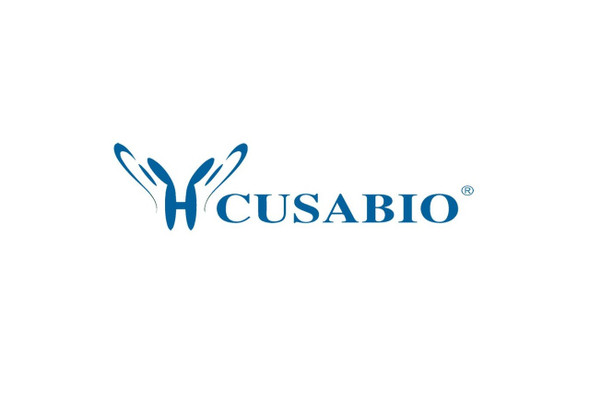Cusabio Human Recombinants
Recombinant Human C-C motif chemokine 21 (CCL21) | CSB-EP004785HU
- SKU:
- CSB-EP004785HU
- Availability:
- 13 - 23 Working Days
Description
Recombinant Human C-C motif chemokine 21 (CCL21) | CSB-EP004785HU | Cusabio
Alternative Name(s): 6Ckine;Beta-chemokine exodus-2;Secondary lymphoid-tissue chemokine ;SLC;Small-inducible cytokine A21
Gene Names: CCL21
Research Areas: Immunology
Organism: Homo sapiens (Human)
AA Sequence: SDGGAQDCCLKYSQRKIPAKVVRSYRKQEPSLGCSIPAILFLPRKRSQAELCADPKELWVQQLMQHLDKTPSPQKPAQGCRKDRGASKTGKKGKGSKGCKRTERSQTPKGP
Source: E.coli
Tag Info: N-terminal GST-tagged
Expression Region: 24-134aa
Sequence Info: Full Length of Mature Protein
MW: 39.3 kDa
Purity: Greater than 90% as determined by SDS-PAGE.
Relevance: Inhibits hopoiesis and stimulates chotaxis. Chotactic in vitro for thymocytes and activated T-cells, but not for B-cells, macrophages, or neutrophils. Shows preferential activity towards naive T-cells. May play a role in mediating homing of lymphocytes to secondary lymphoid organs. Binds to atypical chokine receptor ACKR4 and mediates the recruitment of beta-arrestin (ARRB1/2) to ACKR4.
Reference: Solution structure of CCL21 and identification of a putative CCR7 binding site.Love M., Sandberg J.L., Ziarek J.J., Gerarden K.P., Rode R.R., Jensen D.R., McCaslin D.R., Peterson F.C., Veldkamp C.T.Biochemistry 51:733-735(2012)
Storage: The shelf life is related to many factors, storage state, buffer ingredients, storage temperature and the stability of the protein itself. Generally, the shelf life of liquid form is 6 months at -20?/-80?. The shelf life of lyophilized form is 12 months at -20?/-80?.
Notes: Repeated freezing and thawing is not recommended. Store working aliquots at 4? for up to one week.
Function: Inhibits hemopoiesis and stimulates chemotaxis. Chemotactic in vitro for thymocytes and activated T-cells, but not for B-cells, macrophages, or neutrophils. Shows preferential activity towards naive T-cells. May play a role in mediating homing of lymphocytes to secondary lymphoid organs. Binds to atypical chemokine receptor ACKR4 and mediates the recruitment of beta-arrestin (ARRB1/2) to ACKR4.
Involvement in disease:
Subcellular Location: Secreted
Protein Families: Intercrine beta (chemokine CC) family
Tissue Specificity: Highly expressed in high endothelial venules of lymph nodes, spleen and appendix. Intermediate levels found in small intestine, thyroid gland and trachea. Low level expression in thymus, bone marrow, liver, and pancreas. Also found in tonsil, fetal heart and fetal spleen.
Paythway: Chemokinesignalingpathway
Form: Liquid or Lyophilized powder
Buffer: If the delivery form is liquid, the default storage buffer is Tris/PBS-based buffer, 5%-50% glycerol. If the delivery form is lyophilized powder, the buffer before lyophilization is Tris/PBS-based buffer, 6% Trehalose, pH 8.0.
Reconstitution: We recommend that this vial be briefly centrifuged prior to opening to bring the contents to the bottom. Please reconstitute protein in deionized sterile water to a concentration of 0.1-1.0 mg/mL.We recommend to add 5-50% of glycerol (final concentration) and aliquot for long-term storage at -20?/-80?. Our default final concentration of glycerol is 50%. Customers could use it as reference.
Uniprot ID: O00585
HGNC Database Link: HGNC
UniGene Database Link: UniGene
KEGG Database Link: KEGG
STRING Database Link: STRING
OMIM Database Link: OMIM









